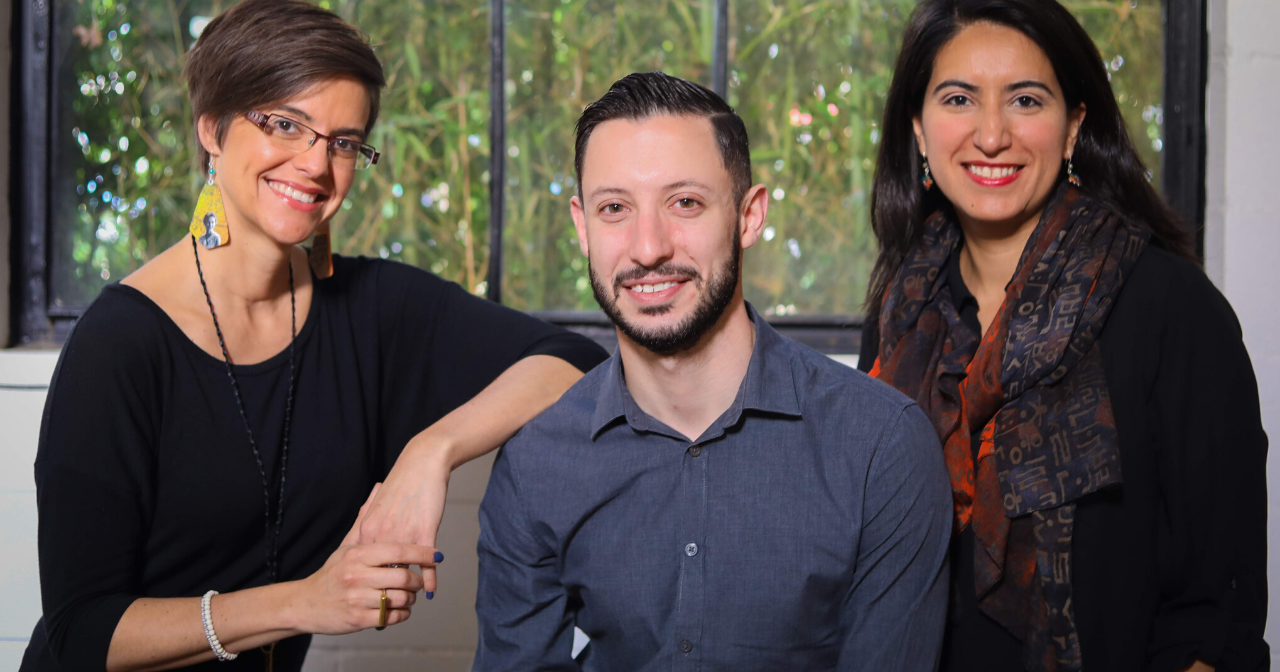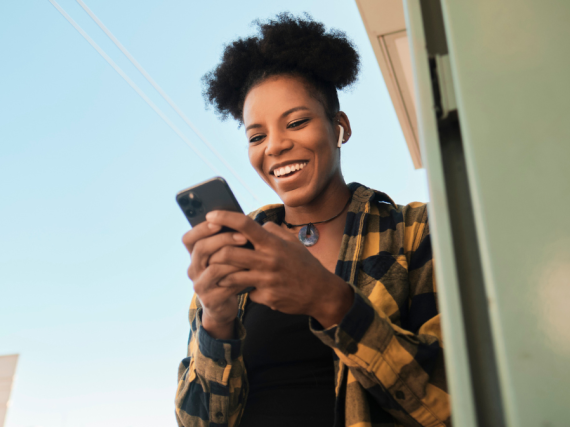Catching Up with Design Vagabonds
Now in its fifth year, and with funding from the Department of Health and Human Services’ Office of Population Affairs, Innovation Next is a unique accelerator program aimed at redefining adolescent sexual health through a focus on technology-enabled ideas to ensure that young people have the information and access to services they need. Fourth Cohort team, Design Vagabonds discusses their work so far and what they hope the future holds.
How did you first hear about Innovation Next and how did you form your team?
We were originally a third cohort team, so this is our second year participating in the Innovation Next initiative. We heard about Innovation Next while working on another grant and it immediately interested us. But the application process was very competitive, so we didn’t make it the first time we applied! When we applied the second time and made it, we were very excited.
Unlike many of the other Innovation Next teams, ours is entirely in-house. We all work for Healthy Teen Network, a Baltimore-based, national nonprofit that promotes better outcomes for adolescents and young adults. We believe that working together prior to this project has given us a great base to build from as we all bring very different skills to the table, but also, we know how to work well together and tackle problems as a team.
What was your team's original idea for Innovation Next?
Going into the application process, we had two ideas we wanted to explore. The first involved leveraging young men’s gaming behavior to insert educational messages into popular, established games. Our second idea was to develop an app-based game that worked like a self-led intervention, which would allow young men to learn about their sexual health as they followed the story.
Did your idea change once you began the Innovation Next design process?
Yes! We’ve pivoted completely! We kept ourselves very open, and from the very first Innovation Next training, we scrapped both our initial ideas.
We are now working to develop Wingman, an alternative, suggestive keyboard for the phone to help young men ages 18-24 navigate tough conversations around sexual health with their partner. Using machine learning, Wingman will help keep conversations going by prompting users to discuss important subjects such as consent and birth control before they get in bed. Wingman also helps young people overcome uncertainty or shame when communicating with their partner about sex.
How did Innovation Next cause you to think outside of the box?
While we had some experience with design thinking prior to Innovation Next, this program gave us the physical and mental space we needed to brainstorm and explore new ideas without fear of failure. Having that space allowed us to dream big while staying grounded on our core question, “How might we harness current media preferences to encourage safe and pleasurable sexual experience? ”
We spoke and listened to our target audience with our researcher ears. But because of the trainings from Innovation Next, we tuned those ears to help us hear better what young people said. For example, we realized that a lot of young men learned by listening to other young men’s stories. So we considered some solutions that involved storytelling. However, what was more salient to us is how young men are sharing their sexual likes and dislikes with a partner over text, but when it comes time to ask about safer sexual practices, they feel awkward and embarrassed. So, we explored how we could take a platform that they use all the time (their smartphone keyboard) and integrate an easy-to-use communication solution.
What is your biggest takeaway from Innovation Next?
The process of gathering insights changed for us from a highly structured standardized research process to an open, fluid interview process. Now, we’re looking for something slightly different, and we’re listening with a different ear. We ask different questions. And we ask more questions! It’s been an incredible journey where we have learned to feel comfortable in the space of ambiguity and making sense of very messy research processes.
What future goals do you all have for this program?
We have so many goals for Wingman! In the future, we hope to get millions of users and become wildly successful, of course!
But in the next year or so, we’d like to come up with a solid strategy on how to best acquire users, how to monetize the app so that it can be self-sustaining, and how to optimize the machine learning so that the predictive text is as useful as possible for all users and their specific situations. But overall, we hope Wingman contributes to a culture of sex positivity and that machine learning and artificial intelligence is seen as way to tangibly support youth’s sexual health.



